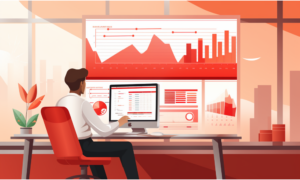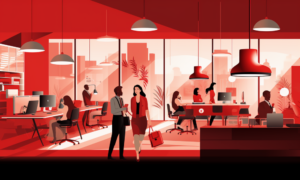How HR will lead the way post-pandemic
- 6 Min Read
The global pandemic has created unprecedented circumstances for the world of business. Now more than ever, people are crucial to the makeup of an organisation, and as a result, HR’s role has been elevated. Mari Ryan, CEO and Founder, Advancing Wellness, offers her thoughts on this new role and what it will look like moving forward.
- Author: Mari Ryan
- Date published: Jun 2, 2020
- Categories

The world has certainly seen its share of catastrophic events in the last two decades. 9/11 was the worst act of terrorism on U.S. soil; Hurricane Katrina and Superstorm Sandy barreled in with a vengeance; Japan’s combined earthquake and tsunami was considered the most expensive disaster in human history; and the Great Recession ravaged economies and plunged millions into financial despair. And now, in 2020, enter the COVID-19 pandemic. In a nutshell, this has disrupted our lives to the core, impacting every person on the planet and leaving us filled with uncertainty about the path ahead.
For HR leaders, there is no playbook for what we are living through today. Adapting to the constantly changing environment while keeping businesses functioning and employees safe and calm has required agility and patience in the extreme.
HR Elevated
People are our business. While there are numerous stakeholders, every business executive knows that they can not achieve their business objectives without a motivated, engaged, and healthy workforce. As Herb Kelleher, co-founder and former CEO of Southwest Airlines stated: “The business of business is people.”
As a result of the situation, the role of HR has been elevated and given a central role in managing the changes organisations are undertaking during this pandemic.
Matt Burns, founder of the Global HR Collective, shared his views views on this. “The 2008 global financial crisis was a catalyst for the rise of the CFO in most organizations,” he said.
“COVID-19 holds the same opportunity for HR leaders as they deftly balance the tension at the intersection of business continuity, economics, and organisational culture.”
The pandemic has accelerated business transformation at warp speed. Many of the transformations have directly impacted employees, such as work from home policies, adoption of technologies that facilitate remote work and learning to provide virtual services to customers. HR is leading the way by advocating for the tools that keep employees productive and able to carry out core business functions.
HR has become the center of the hub in the workplace ecosystem, responsible for moving the business forward for both the short and long-term. The foundation of HR’s work will be to create both resilient organisations and resilient people.
Larry Stybel, Harvard-educated psychologist and outplacement expert, said: “COVID-19 may be the first pandemic this generation has faced, but there may be more that follow. HR’s role is to facilitate and manage a ‘new normal’ that stresses flexibility, safety and empathy.”
Resilient organisations
Resilience is the ability to bounce back and recover from misfortune or change. This applies not only to people but equally to organisations. Resilience theory suggests that it is not the nature of the adversity that counts, but how we deal with it.
Resilient organisations are led by resilient leaders. Resilient leaders will model empathy, compassion, and decisiveness. They will show their human side. Renowned HR thought leader Josh Bersin proposes that CEO now stands for Chief Empathy Officer. HR’s role is to coach and encourage all leaders, at all levels, and to develop these essential skills.
Resilient organisations are adaptable. According to a recent Harvard Business Review article, “they [organisations] must adapt what and how things get done in order to thrive in tomorrow’s world. They must develop ‘next practices’ while excelling at today’s best practices”. HR’s role is to help all members of their organisation adapt a growth mindset and empower teams to undertake planned experiments. Such things will help them find the path to what works best for the business.
Resilient organisations are flexible. Flexibility means leaders and managers need to rethink what ‘work’ means. Work is no longer a place where everyone shows up. Alicja Januszewicz, Head of People and Culture at Allena Pharmaceuticals, gave her view on this. “The question about new normal is not about working from home, but it is about working from anywhere where people can be most productive, know their purpose, and feel that they belong to an organisation that cares,” she said. HR’s role is to show that people may actually be more productive while working from home and that their quality of life may actually be improved. Workplace policies, benefits, and attitudes will need to evolve to support those that may not be willing to come back to the workplace in the short or long-term.
Resilient organisations have strong culture. A strong culture is essential for both short-term recovery and long-term success. Culture is based on purpose, values, behaviors, and norms. Thriving, resilient cultures see accelerated performance compared with their peers especially during times of crisis, according to newly published research in the Journal of Human Performance. HR’s role is to be the steward of the culture and ensure leaders demonstrate caring for the workforce, in both their actions and words.
Resilient people
Resilient organisations are populated with resilient people. When employees are resilient, they are thriving, work well together in teams, and strive to fulfill the organisation’s purpose. Resilient people are essential for every organisation to move forward.
Resilient people are thriving in their wellbeing. Thriving, as a measure of life satisfaction, is defined as wellbeing that is strong, consistent, and progressing. Employees who are thriving will report fewer health problems, fewer sick days, less worry, stress, sadness, anger, and more happiness, enjoyment, interest, and respect. Gallup’s research has shown that thriving in wellbeing strengthens employee engagement. In turn, engaged employees produce better business outcomes. HR’s role is to support and encourage the wellbeing of the workforce through policies, benefits, and programs, and to help employees move from struggling to thriving.
Resilient people work well together in teams. None of us work alone. We are all part of a team and depend on others to achieve our personal goals and those of the organisation. Working together can instill confidence and motivation to overcome adversity, become stronger, and achieve goals. One of the hallmarks of resilience is the ability to improvise. HR’s role is to foster collaboration by building trust and create a psychologically safe workplace.
Resilient people are connected to the organisation’s purpose.
Having a strong purpose in life is linked to health and longevity. It can also help us re-frame stressful situations and recover from them quicker. Employees want work they believe matters and to feel connected to an organisation’s purpose – that outward-focused contribution to the greater good. HR’s role is to keep that purpose visible in communications, actions and the behavior of their leaders.
HR’s role will continue to be elevated as we move through this ongoing time of change and uncertainty. HR is poised to lead the way in instilling resilience so that both the organisation and its people thrive.









